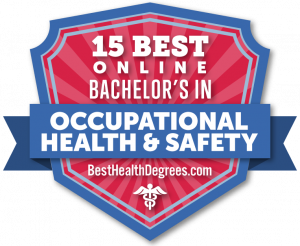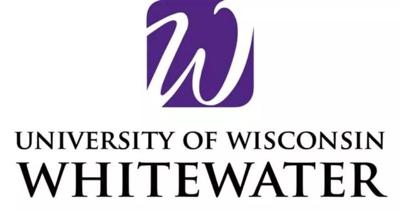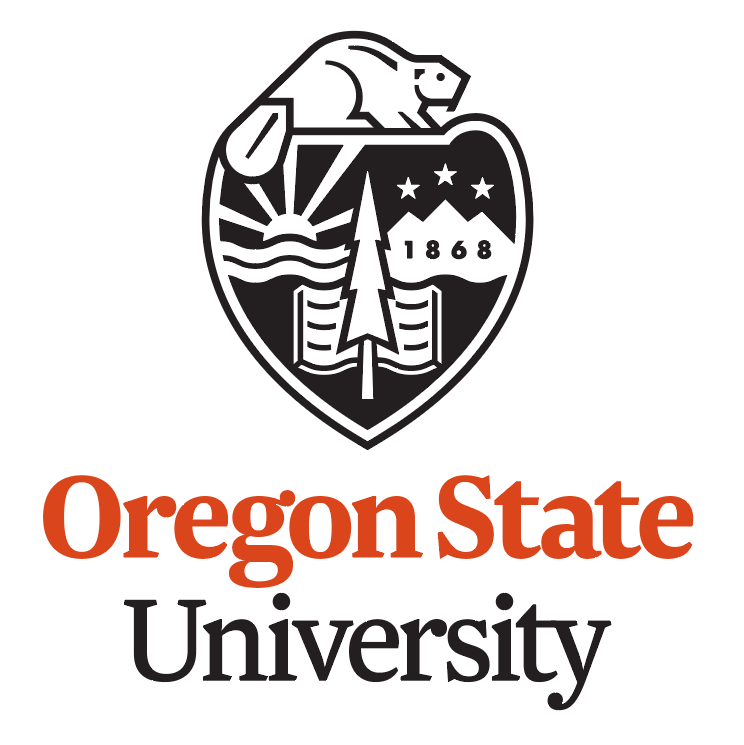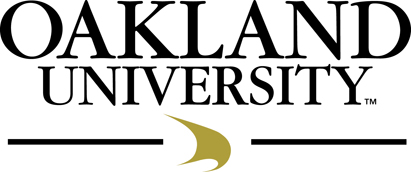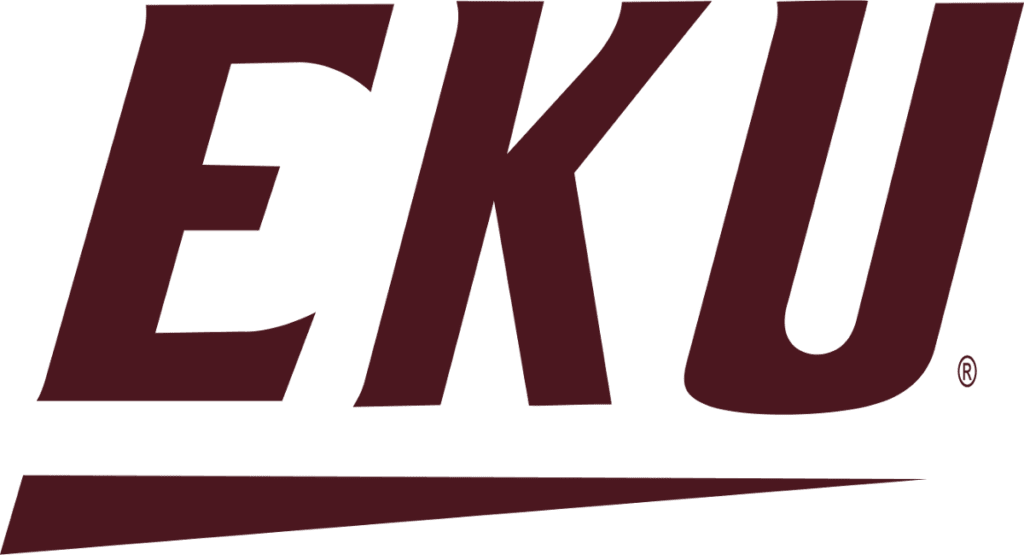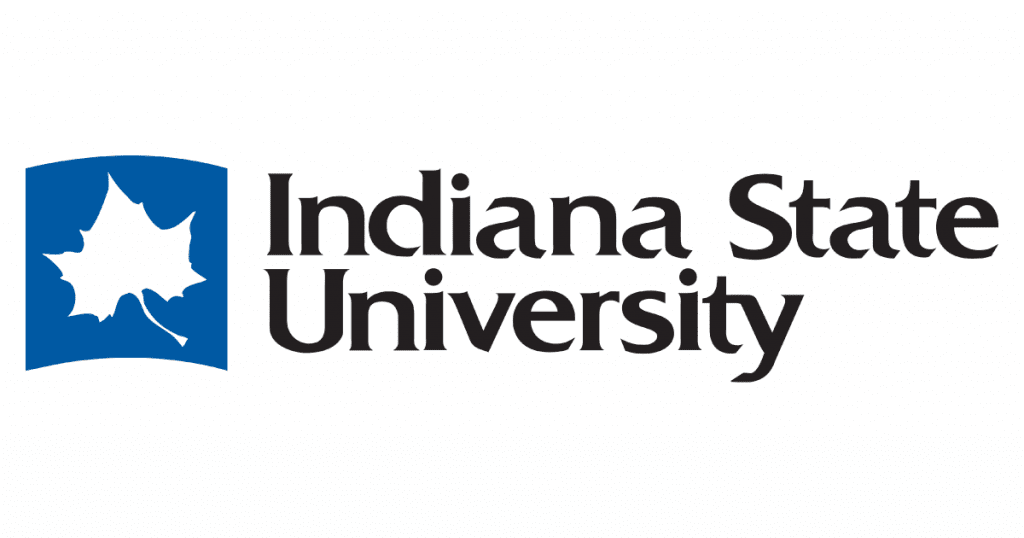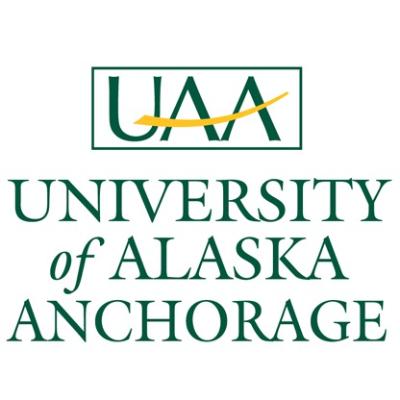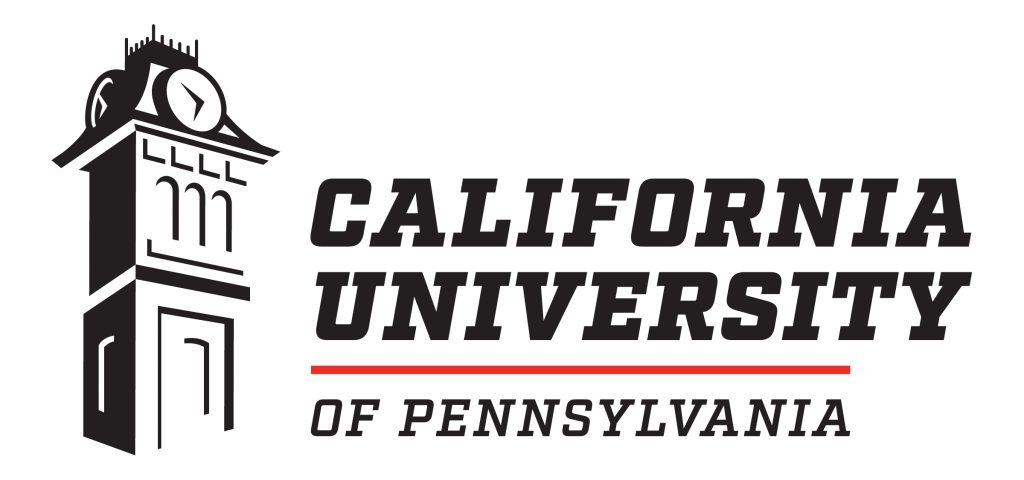Key Takeaways:
- Embry-Riddle Aeronautical University and Athens State University are two top schools for occupational health and online safety degree programs.
- The field has evolved significantly since the early 20th century, addressing severe workplace safety issues and improving working conditions.
- The programs offer comprehensive training in safety management, risk assessment, and emergency response
- Graduates are equipped with the necessary skills to manage and prevent workplace hazards.
- Advancing in this field often requires certifications such as the Graduate Safety Practitioner (GSP), and the curriculum frequently includes both foundational and specialized courses.
The best Occupational Health and Safety degree programs online teach students to create safe occupational environments and also train experts. In 2020, a report released by the Bureau of Labor Statistics, National Census of Fatal Occupational Injuries in 2019 report which cited a frightening statistic that a worker died every 99 minutes from a work-related injury.
Whenever we step outside of our homes, we’re at risk of being injured, made ill, or dying from unsafe public and workplace practices. At the turn of the 20th century, adult and child miners working in poorly ventilated and unsafe situations developed Black Lung Disease, were injured, or were killed. Workers in steel and automobile factories died as a result of unsafe practices due to an emphasis on production regardless of safety. In 1911, the Triangle Shirtwaist Factory fire stunned the country when 146 women, as a result of doors being locked in order to prevent theft, were killed jumping from windows to escape the inferno.
There are, sadly, more examples than we can cite here. To study ways to meet the obligations to create safe occupational environments, colleges and universities began academic programs to train experts to examine, analyze, and develop safety measures across a wide variety of occupations.
Best Health Degrees has looked at a range of schools to identify some of the best online bachelor’s degree programs in Occupational Health and Safety to help you find a program that suits your goals. We provide highlighted information to give you a general feel for coursework, admission requirements, cost, school reputability, etc., as well as pertinent school links. This ranking looks at information for first-year students, but transfer students for occupational safety and health will follow the same program guidelines.
Method: Ranking the Occupational Health and Safety Programs
To rank the 15 Best Online Bachelor’s in Occupational Health and Safety Programs, Best Health Degrees editors researched accredited, trusted programs of all kinds. From our initial pool, we ranked programs according to price, accreditation, reputation, and salary potential, using data from IPEDS and Niche, U.S. News and World Report, and other higher education rating publications.
1. Embry-Riddle Aeronautical University
Here’s an online BS in Safety Management which is a Board of Certified Safety Professionals (BCSP) Qualified Academic Program (QAP). Additionally, it has a Graduate Safety Practitioner (GSP) program designation. This qualified academic program designation is beneficial for the pursuit of certification.
The 121-credit hour occupational health and safety curriculum begins with general education classes in Communication Theory and Skills, Physical and Life Science, and also Humanities. Core classes in the Safety Management major include studies in:
- Fundamentals of Occupational Safety and Health
- Construction Safety
- Ergonomics
- Industrial Hygiene
- Toxicology
Also offered are Environmental Compliance and Safety, Introduction to Health, Occupational, and Transportation Safety, as well as elective courses.
You’ll begin the admission process by completing a Worldwide and Online Campus application ($50 fee). You should expect to submit academic transcripts, ACT/SAT scores (recommended), FAFSA®, and other documents as requested.
Estimated Tuition Cost: $10,296/per academic year
Fast Facts: This university ranks in US News and World Report as #4 in Best Schools for Veterans. It is also #5 in its Most Innovative Schools categories.
School: Interested? Check out the program site!
2. Athens State University
This Alabama school has a BS in Occupational Health and Safety Management. Furthermore, the occupational safety degree is completely online.
This 124-credit-hour curriculum has a career focus and is highly flexible. You’ll need general education classes as well as major prerequisites for this online degree program. Among the courses are topics in:
- Risk Management and Security in the Workplace
- Injury Damage Incidents Evaluation and Reporting
- Environmental Health and Regulation
- Ergonomics and Human Factors
- Managing the Public Safety and Health Emergency
- Safety Training and Development
You may also participate in a management internship as well as a career seminar in your studies. Additional specifics of the program are on the departmental website.
You’ll start your enrollment process with the $30 application. Admission requires you to have at least 36 transferrable hours from an accredited study prior to admission to the OHSM occupational health and safety program and a 2.0 GPA.
Estimated Tuition Cost: $225/per credit hour
Fast Facts: ASU was founded in 1822 and holds institutional accreditation from The Southern Association of Colleges and Schools Commission on Colleges (SACSCOC)
School: Interested? Check out the program site!
3. The University of Arizona Global Campus
You have a choice of delivery options with this BS in Public Health with an Environmental and Occupational Health Emphasis from UA. This occupational safety program is through UA’s Global Campus or the Tucson campus.
With this four-year occupational health and safety degree, you’ll cover general education coursework as well as Public Health classes. Some of the classes you’ll take are:
- Introduction to Public Health
- Global Health
- Introductory Biology (with lab)
- Human Anatomy and Physiology
- Introduction to Environmental and Occupational Health
- Health Care in the United States
Classes are also provided in Global Water, Sanitation and Hygiene, and Topics in Environmental Justice.
This occupational safety program is through the school’s Mel & Enid Zuckerman College of Public Health and the admission is a two-tier process. The admission process starts by applying to Arizona University as well as a submission of an application ($50 for Arizona residents and $80 for non-Arizona residents). ACT and SAT test scores aren’t required, and a high school diploma (or GED). Other information, such as academic transcripts, may be required as well. Once you’ve completed pre-requisite courses at AU, you’ll make a supplemental application for the Public Health Major.
Estimated Tuition Cost: $12,716-$36,743/per academic year
Fast Facts: U.S. News and World Report rates it #99 in Best Global Universities with Forbes ranking AU #62 in its America’s Best Value Colleges 2021
School: Interested? Check out the program site!
4. University of Wisconsin – Whitewater
You can earn a BS in Occupational Safety degree online from this ABET-accredited program at the University of Wisconsin-Whitewater. This is a Qualified Academic Programs (QAPs) program.
This completely online, 120-credit-hour occupational safety curriculum covers:
- Introduction to Occupational Safety & Health
- Occupational Safety Management
- Personal and Public Safety
- Ergonomics, Principles, and Methods of Industrial Hygiene
- Behavioral Aspects of Accident Investigation
- Principles of Environmental Management
- Personal and Public Safety
The curriculum also has “unique requirements” in physics, chemistry, biological foundations, human anatomy, and also physiology.
Your admission begins with an application. Then you submit official high school transcripts or GRE/HSED. ACT scores are optional and are used for English placement if submitted.
Estimated Tuition Cost: $389/per credit hour
Fast Facts: Niche categorizes UW-W #186/691 in its Top Public Universities in America and U.S. News and World Report ranks it #11 Regional Public Colleges and Universities
School: Interested? Check out the program site!
5. University of Maryland Global Campus
The University of Maryland is a well-respected online campus and awards a BS in Environmental Management through its Healthcare and Science division. This occupational safety program prepares you to evaluate and develop programs to manage environmental risk factors for human health.
The 120-credit-hour curriculum includes general education classes along with the major’s requirements. You’ll enroll in classes in:
- Environmental Regulations and Policy
- Occupational Health and Safety
- Environmental Technology
- Human Health and Disease
- Environmental Technology
You’ll also be able to choose classes from either a Sustainability or Toxicology and Hazard Control focus to align with your particular career goals. Classes are completely online or in a hybrid format.
Completion of an online application ($50 fee) begins the admission process to UMGC. The school asks for copies of all academic transcripts and that you submit a FAFSA®.
Estimated Tuition Cost: $7,560-$12,336/per academic year
Fast Facts: Forbes ranks this school #14 in its Top Public Colleges ranking and U.S. News and World Report considers it in the Top 100 Best Global Universities
School: Interested? Check out the program site!
6. Oregon State University
Are you in an undergraduate degree program at Oregon State University, or do you want to enhance a postbaccalaureate degree? If so, you can earn a minor through the online academic programs at Oregon State University in Environmental and Occupational Health. The occupational safety minor offers a focus of study on public health prevention strategies and more.
This minor curriculum is a 27-credit-hour field of study. You’ll take required courses in:
- Occupational Health
- Foundations of Environmental Health
- Public Health Toxicology
The minor also offers classes in:
- Agricultural Safety and Health
- Food Law, Safety and Health Standards Law
- Emergency and Disaster Management
- Sustainability for the Public Good
- Population, Consumption, and Environment
The courses provide the scientific knowledge and experience to influence policies in public health, the environment, and also occupational health and safety.
Application for postbaccalaureate students requires you to have an accredited bachelor’s degree (with a 2.5 GPA), provide academic transcripts (showing completion of English Composition and College Algebra), and a personal statement of objectives. An application requires a $65 fee.
Estimated Tuition Costs: $326 per credit hour
Fast Facts: OSU ranks #4 in U.S. News and World Report’s Best Online Bachelor’s Programs. And Forbes includes the school in its Top Colleges 2021 rankings.
School: Interested? Check out the program site!
7. Oakland University
The 100 percent online BS in Environmental Health and Safety from this Rochester, Michigan school is offered through the Public and Environmental Wellness department.
The occupational safety curriculum requires completion of the school’s general education as well as EHS degree courses. You’ll take:
- Introduction to Organic and Biological Chemistry
- Human Biology
- Basic Statistics for Health Sciences
- Introduction to Psychology
Major classes provided are:
- Fire Science, Fire Prevention, and Protection
- Safety and Health Administration Programs
- Occupational Safety and Health
- Introduction to Ergonomics
A varied slate of electives in Hospital Safety and Health, Radiation Safety, Health Care Safety, etc. is provided.
Admission for first-year students requests you have an overall 3.2 high school GPA. The school no longer requires ACT or SAT scores. Additionally, the school may ask you for additional documents, such as academic transcripts. And, of course, you’ll need to complete an application with your first name, last name, telephone number, and digital signature to get started.
Estimated Tuition Cost: $478-$562/per credit hour
Fast Facts: Oakland University ranks #122 in US News and World Report’s Best Online Bachelor’s Programs. It is also #262/691 in Niche’s Top Public Colleges in America.
School: Interested? Check out the program site!
8. North Carolina Agricultural and Technical State University
Known to students as A&T Online, this division of NC A&T State University awards a BS in Environmental Health & Safety requiring 126-credit hours.
The occupational safety curriculum prepares students to work in Safety and Health careers and offers an Environmental Health and Safety Management or Science Focus. Depending on your occupational safety focus, classes include topics in:
- Environmental Health and Safety
- Human Factors
- First Aid and Safety
- Environmental Risk Assessment
- Environmental & Occupational Epidemiology
- Environmental Ethics
A&T Online Admission criteria indicate you must meet the admission requirements for the University of North Carolina. Among the materials needed are an application and academic transcripts. But, contact the Office of Admissions to determine what other information they need.
Estimated Tuition Cost: $120-$576/credit hour
Fast Facts: Ranked #8 in U.S. News and World Report’s Public Historically Black College and Universities and is one of Forbes’ Top Colleges in 2021
School: Interested? Check out the program site!
9. Eastern Kentucky University
The BS in Occupational Safety at EKU is both on-campus and online. Students learn ways to keep workers safe and also how to implement corrective safety measures. On completion of the safety degree program, you’ll qualify for the Graduate Safety Practitioner (GSP) as the program is a Qualified Academic Program (QAP) by the Board of Certified Safety Professionals or BCSP.
This occupational safety major includes classes in:
- Principles of Occupational Safety and Health
- Measures of Safety Performance
- Human Factors in Occupational Safety
- Safety and Health Program Management
- Environmental Law and Management
- Process Safety Management
- Safety Training Strategies
- a Senior Capstone Project
You may also qualify for an Internship with departmental approval. This Eastern Kentucky University curriculum is 120-credit hours and is the same for online students as for those attending the Richmond, KY campus.
You’ll begin by completing an application and providing academic transcripts. Prospective students need a 2.5 GPA. ACT or SAT scores are recommended, but not required.
Estimated Tuition Cost: $9,876-$19,948/per academic year
Fast Facts: U.S. News and World Report rates EKU’s online programs #67 as a Best Online Bachelor’s degree program.
School: Interested? Check out the program site!
10. Indiana State University
Here’s an online/hybrid BS in Safety Management that requires you to attend a one-week residency on the Terre Haute campus, during the summer of your junior or senior year. This is an ABET accredited program.
Among the classes, the occupational safety curriculum includes foundational courses such as:
- Industrial Organizational Psychology
- Industrial Supervision
- Survey of Management
You’ll enroll in classes in:
- Industrial Hygiene
- Industrial Accident Prevention
- Introduction to Industrial Health and Safety
- Administration of Industrial Health and Safety Programs
- Current Issues and Training Concepts in Industrial Health and Safety
You may also qualify for an internship (typically paid) which requires approval.
A 2.0 GPA, academic transcripts, proof of financial support, and other documents are needed for admission along with an application. ACT/SAT scores don’t appear to be required for this occupational safety and health degree program.
Estimated Tuition Cost: $337-$438/per credit hour
Fast Facts: ISU ranks #250 in Forbes‘ Public Colleges in America and it ranks in the top 200 of U.S. News and World Report’s Best Online Bachelor’s Programs
School: Interested? Check out the program site!
11. University of Alaska – Anchorage
You can earn a BS in Occupational Safety and Health from UA-A, the only such program in Alaska, which features job training internships and other practical experiences. Courses are online and during the evenings.
Some of the occupational safety core curriculum topics are:
- Human Factors
- Injury Prevention and Risk Management
- Fundamentals of Industrial Hygiene
- Risk Management for Safety and Health
- Principles of Ergonomics
You can choose 9 hours of electives from Selected Topics in Occupational Safety and Health as well as Advanced Occupational Safety and Health Internship. You’ll complete a senior Capstone Project applying your education to real-world situational problems.
Admission consideration for the occupational safety program asks you have a high school diploma (or GED certificate) and you’ll self-report your GPA (a minimum 2.5 is required) when you submit an application. Official academic transcripts will be requested. Although they are not used in admission consideration, standardized tests are used in determining math and writing course levels.
Estimated Tuition Cost: $8,622 to $25,228 per academic year
Fast Fact: UA-A ranks #510 in Forbes Top Colleges 2021 and #71 in the Regional Universities West category of U.S. News and World Report.
School: Interested? Check out the program site!
12. Southeastern Oklahoma State University
Depending on your ultimate objectives, the online BS in Occupational Safety and Health in Durant, Oklahoma may suit your safety degree needs.
Courses in this occupational safety bachelor’s program include:
- Drugs in Society
- Industrial Hygiene
- Hazardous Materials, Waste Management, Acoustics, Vibration, and Noise Control
- Introduction to Occupational Safety and Health
- Safety Training and Instructional Techniques
Furthermore, students choose electives from topics such as General Safety, Management, and Organizational Behavior, Special Studies, and an Internship. The entire curriculum requires 124-credit hours.
For Southeastern Oklahoma State University admission, applicants need a minimum of a high school diploma (GED) and a 2.7 overall GPA (or a 20 in ACT/SAT testing). Prepare to provide more documents, like academic transcripts, if the school requests them. An application ($55 fee) starts your admission process to the occupational safety and health program.
Estimated Tuition Costs: $293 per credit hour
Fast Facts: Niche ranks Southeastern Oklahoma State University (SOSU) #695 Colleges with the Best Academics in America and U.S. News and World Report ranks it #50-#66 Top Public Schools.
School: Interested? Check out the program site!
13. Missouri Southern State University
The online BS in Environmental Health and Safety (EHS) degree is one of only 28 in the US that has accreditation from the National Environmental Health Science and Protection Accreditation Council. And, the (EHAC) is the gold standard in the field.
Occupational safety and health general education classes are part of this 120-credit hour occupational safety curriculum and the major studies are diverse. Among the EHS classes offered are:
- Epidemiology
- Disease Vector Control
- Food Safety, Environmental Health and Safety
- Industrial Hygiene, Environmental Risk and Safety Management
- Environmental Toxicology
You’ll also complete a Field Experience by submission of a proposal and approval of the EHS Program Director, Department Chair, and School Dean as necessary.
Freshmen need a high school diploma with a 2.25 GPA or higher, be in the top 50% of their class, and submission of ACT/ACT test scores for admission consideration. You should prepare to submit academic transcripts and additional documents as requested. An application is available online. (NOTE: This program is Fast Track Incentive Grant Eligible.)
Estimated Tuition Cost: $310/per credit hour
Fast Facts: MSSU opened in 1937 and US News and World Report rank it in the top 15 of its Top Public Schools.
School: Interested? Check out the program site!
14. California University of Pennsylvania
If you have an Associate Degree in a related field, you may want to explore this occupational safety degree completion program. Located in California, Pennsylvania, Cal U provides an online BS in Industrial Technology Management which can prepare you for a position as a Safety Manager.
Coursework involves studies in:
- OSHA General Industrial Safety
- Technical Supervision
- Quality Planning and Analysis
- Concepts and Issues in Technology Management
- Technical Supervision
- an Internship or Research Project
The occupational safety degree requires you to complete general education studies in Humanities, Fine Arts, Natural and Social Sciences, Math, English, and Health and Wellness.
Cal U accepts either an institutional application or the Common App and both require an application fee. Official academic transcripts are necessary. Optional materials include ACT scores or SAT scores, personal essays, and letters of reference.
Estimated Tuition Cost: $328 per credit hour
Fast Facts: The Princeton Review ranks Cal U among the Best in the Northeast categories. It is also #204 in US News and World Report’s Best Online Bachelor’s Programs.
School: Interested? Check out the program site!
15. University of Central Missouri
You’re given three options for earning this BS in Occupational Safety with specialties in Environmental, Safety, or Health Science Management concentrations.
You’ll take classes in:
- Environmental Compliance
- Applied Sciences for Professional Studies
- Industrial Hygiene
- Ergonomics in Safety and Health
- Accident Investigation
- Occupational Risk Management
- Systems Safety
- Human Biology
An internship is required. You may consider enrolling in the Occupational Safety BS/Occupational Safety Management MS Accelerated Program. This occupational safety and health program is either online, hybrid, or on campus. You’ll earn both a bachelor’s and master’s degree in five years as opposed to the six typically needed for both degrees.
UCM considers a wide scope of factors in considering students for occupational safety program admission. Among application considerations are your high school GPA, letters of recommendation, the personal statement letter, as well as activities in your community involvement. UCM is ACT/SAT test-optional.
Estimated Tuition Cost: $8,306-$15,434/per academic year
Fast Facts: UCM ranks #16 in US News and World Report’s Top Public Schools category. It is also one of Forbes’ magazine picks for America’s Top Colleges.
School: Interested? Check out the program site!
What is Occupational Health and Safety?
In 1970, President Nixon signed the Occupational Safety and Health Act (OSHA) and created federal health standards and regulations across the country to protect, not only workers but people in general. Federal, state, and local government regulatory agencies began requiring safe and healthy work environments.
Health and safety professionals enforce health regulations and regulatory compliance and manage employee safety education. They also work to eliminate potential workplace hazards, and safety hazards, and implement safety programs and corrective safety measures. These professionals can be safety managers or safety specialists.
Why Should You Attend an Online Program?
With the widespread availability of computers and the Internet in the 1990s, as well as the COVID-19 pandemic of the 21st century, we’ve seen more colleges and universities develop online opportunities to earn college degrees. These online occupational health and safety degrees are the same programs as the ones on campus with the same curriculum and faculty members. Students learn problem-solving skills and knowledge to build a strong foundation for their careers in occupational safety.
In an online occupational safety BS program, students learn and earn degrees in less time and with less money. If you need to work as you pursue one of these occupational safety degrees, online classes allow you to continue working and help you to have a more balanced work-life experience. The National Center for Education Statistics reported that in 2000, 53% of undergraduate students worked full-time. In 2020, US News and World Report cited a study by the Georgetown University Center on Education and the Workforce that found close to 70% work while enrolled in college.
What is the Curriculum?
An occupational safety degree program prepares students for roles in which they proactively keep workers safe. Online courses typically are more intensive and typically shorter in duration and offered in short 5-8 weeks segments. Listed below are some of the classes and topics of study in an occupational safety bachelor’s program.
- Construction Safety and Construction Site Safety
- Hazardous Materials Management
- Corporate Compliance
- Environmental Science and Hazardous Substances
- Biological Sciences
- Air Quality and Fire Safety
- Development of Safety Programs
- Management Techniques and Organizational Leadership
- Emergency Management
- Fire Protection and Fire Hazards
- OSHA Regulations and OSHA Standards
- Occupational Safety Engineering
- Automated Technology
- Risk Identification and Countermeasures
- Workplace Risk Factors and Material Handling
- Public Health
- Workplace Safety and Employee Safety Education
- Workers Compensation
How Much Does an Online Program Cost?
Frequently, schools offer online students in-state tuition regardless of the state of residence. This can broaden your access to schools and program options without adding a significant out-of-state tuition cost. Financial aid is also available to qualified students.
The National Council for State Authorization Reciprocity Agreements (NC-SARA) is integral in allowing students to cross states to earn an online degree and other educational services. You may want to make sure the school(s) want to attend accept students from your state.
You’ll want to complete the Free Application for Federal Student Aid (FAFSA®. Even if you don’t think you need financial assistance through grants or loans, the FAFSA is used for scholarship consideration as well as determining the amount of federal student aid for which you may qualify, if you choose.
Can You Get an Occupational Safety Degree Online?
Short answer? Yes, many schools have a degree in occupational safety or an online occupational safety program. Furthermore, the majority of online degree programs hold regional accreditation from a Department of Education-approved organization, such as the Higher Learning Commission.
This is the case for bachelor’s of science in occupational safety degrees and master’s degrees. All the universities and colleges in this ranking hold, at minimum, regional accreditation. But, accreditation doesn’t necessarily stop there, as individual programs can hold accreditation as well.
Accreditation for Occupational Health
The programs in this ranking are all accredited by independent agencies such as the Higher Learning Commission and as well as other Department of Education-recognized agencies. Some programs have specialty accreditation. You should look for programs accredited by the Applied Science Accreditation Commission of the Accreditation Board for Engineering and Technology (ABET) and the BS is a Qualified Academic Program (QAP) by the Board of Certified Safety Professionals (BCSP). The QAP meets the credentialing requirement for Certified Safety Professional (CSP) certification.
ABET is a non-governmental agency that accredits programs in applied and natural science, computing, engineering, and engineering technology and assures you the program meets quality standards. There are other program recognitions, such as those offered by the National Environmental Health Science and Protection Accreditation Council (EHAC). Additionally, there are professional organizations where occupational health professionals can earn certifications or a Safety and Health Certificate.
What Can You Do with a Health and Safety Degree?
The U.S. Bureau of Labor Statistics and online job sites indicate there are numerous OSH careers available for bachelor’s and master’s degree holders. Careers as Occupational Health and Safety (OHS) directors, technicians, and analysts can be found in hospitals, healthcare systems, manufacturing, and industry, local, state, and federal government agencies, consulting services, and more.
One of the best descriptions for the field is from the Occupational Health and Safety Administration (OSHA) OSH professionals analyze potential workplace hazards and ensure that safety regulations are identified and addressed. They use processes to track compliance through analysis and written reports of the investigation of accidents, incidents, complaints, and much more.
Occupational Health and Safety Jobs
The BLS projects the overall employment of occupational health and safety specialists and technicians to grow 7 percent from 2020 to 2030. This is about the average growth for all jobs. So the job outlook for this career path is good!
There are many career paths for occupational safety professionals listed by the BLS in the private and public sectors. They include entry-level positions and leadership positions in:
- Emergency Management Directors
- Health and Safety Engineers
- Environmental Science and Protection
- Construction and Building Inspectors
- Industrial Hygienists
- Fire Inspectors
- Environmental Scientists and Specialists
- Health and Safety Engineers
- Certified Safety Professional
- Associate Safety Professionals
- How Much Can You Make with an OSH Occupational Safety and Health Degree?
Individuals can earn an associate’s or bachelor’s degree online in occupational safety. Completing a degree program will prepare students to earn more in their current roles or to attend graduate school. Listed below are some jobs with the average salary of professionals in occupational safety and health.
- Emergency Management Directors – $76,730 per year
- Construction and Building Inspectors – $61,640 per year
- Occupational Health and Safety Specialist – $76,290 per year
- Health and Safety Engineer – $99,040 per year
- Occupational Health and Safety Technician – $74,870 per year
- Fire Inspectors – $63,080 per year
- Associate Safety Professional
OHS Professional Resources
- American Society of Safety Professionals (ASSP
- Occupational Safety and Health Administration (OSHA)
- American Industrial Hygiene Association (AIHA)
- Board of Certified Safety Professionals (BCSP)
- Certified Commercial Property Inspectors Association (CCPIA)
- Occupational Health & Safety (OH&S)
- National Fire Protection Association (NFPA)
- Occupational Safety and Health Administration (OSHA)
- National Institute for Occupational Safety and Health (NIOSH)
- The Safety Pro Podcast
- National Safety Council (NSC)
Related:
- Best Bachelor’s in Occupational Health and Safety Programs
- Fastest Online Bachelor’s in Occupational Health and Safety
- Best Online Counseling Master’s Programs
- Best Online Psychology Master’s Programs
- Best Public Health Bachelor’s Degrees
- Fastest Online Psychology Master’s Programs
- Best Counseling Bachelor’s Programs
- Best Online Counseling Masters Programs
- Best Medical Billing and Coding Degrees
- Best Counseling Master’s Programs
- Fastest Online Counseling Master’s Programs
- Cheapest Psychology Degrees Online
- Best Radiation Science Degrees
